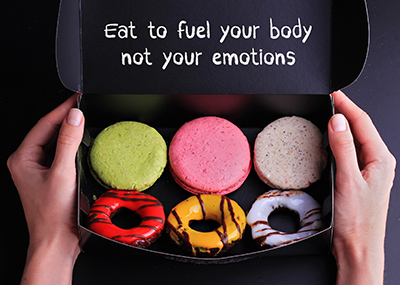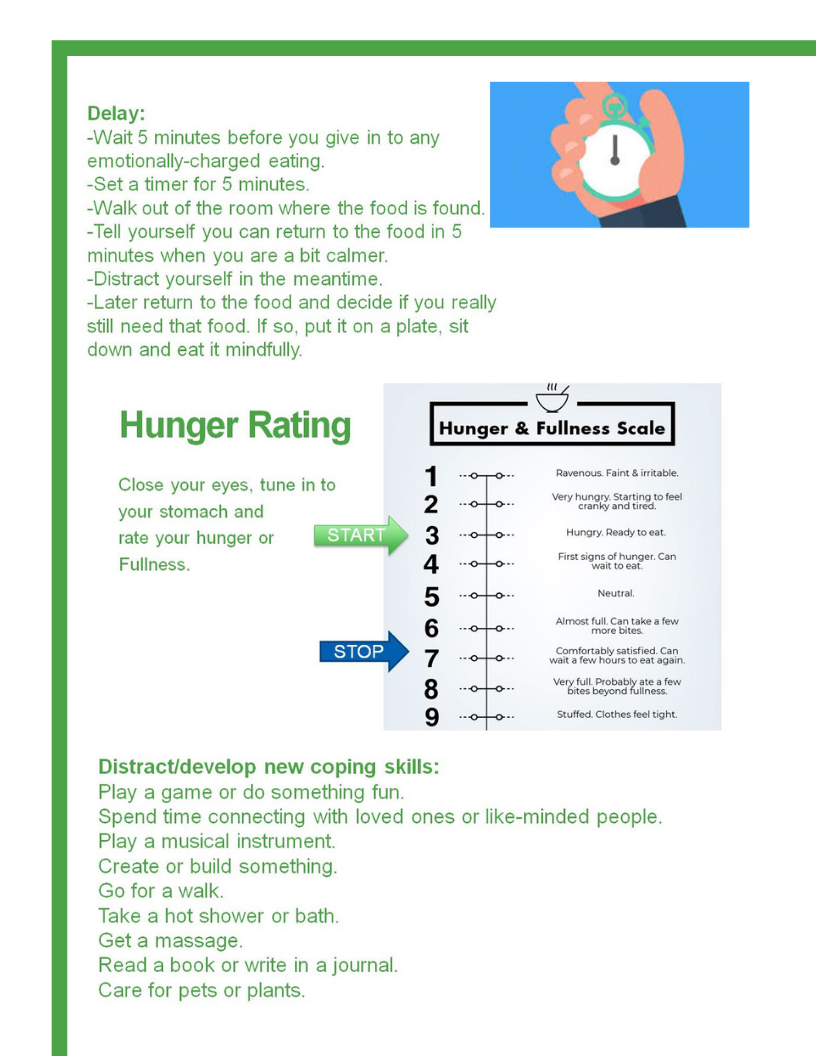Are you an emotional eater?
March 19, 2019

Rosemary Weaver, MPH, RDN, LDN, Clinical Dietitian at the NCH Wellness Center
Do you tend to eat when you’re tired, stressed, frustrated, bored, anxious or lonely – even in the absence of hunger? If so, you’re not alone. Despite the fact that most adults intellectually understand that food is fuel and not therapy, many of us still eat our feelings at times. Why? Food gets tangled up with feelings because it tastes good, helps us temporarily feel better (brain chemistry is involved here) and is readily available. Food also has strong emotional associations to our childhood or social spheres. Not all of this is bad as celebratory eating is part of our culture, but the degree to which emotional eating affects our overall health is key.
Frequent emotional eating can lead to becoming overweight or obese. Depending on the type and amount of foods consumed, it can increase our risk for high blood pressure, heart disease or type II diabetes. To get a handle on emotional eating, the following tips may help:
- Identify problem situations.
- Keep a journal and identify what you ate and how you were feeling at the time.
- Try to identify what was going on in your world just prior to an eating episode.
- Work at managing hunger throughout the day. Although emotional eating often occurs apart from hunger, being overly hungry can intensify cravings or exacerbate a binge.*
- Try eating healthy, smaller meals or snacks about every three or four hours during the day.
- Improve your overall nutrition picture. Be sure your diet includes lots of vegetables, daily fruit, mostly whole grains and moderate amounts of lean protein and healthy fats. Good nutrition provides what your brain and body require to deal with stress.
Having an emotional day? Try these tips:

- Leave the kitchen or wherever food is present, and sit with your feelings for just five minutes. Then, check in with your body and decide if you are truly hungry. If so, put items on a plate, sit down and eat them mindfully. If not truly hungry, try to involve yourself in an activity incompatible with eating, such as taking a brisk walk or a shower or playing a musical instrument. The more strategies in your emotional eating toolbox, the more likely you’ll be to change behavior with these new coping skills over time.
- Practice intentional eating. Learn to be mindful when you eat to avoid “the food trance.” Put away the electronics and focus on your meal. Drink water and eat slowly.
- Print out the graphic in this article, post it on the refrigerator and use it as an in-the-moment emotional eating strategy prompt.
*Emotional eating is not the same as a Binge Eating Disorder. If you eat more rapidly and consume more food than other people do in the same situation, feel like you cannot control how much you eat or when to stop, feel severe guilt/shame after a binge or have an eating binge at least once per week for the past three months, contact a behavioral health professional.
For help with improving nutrition, call 847-618-3625 to speak to an NCH Wellness Center registered dietitian nutritionist, or call 847-618-3700 to reach NCH Outpatient Nutrition Services.